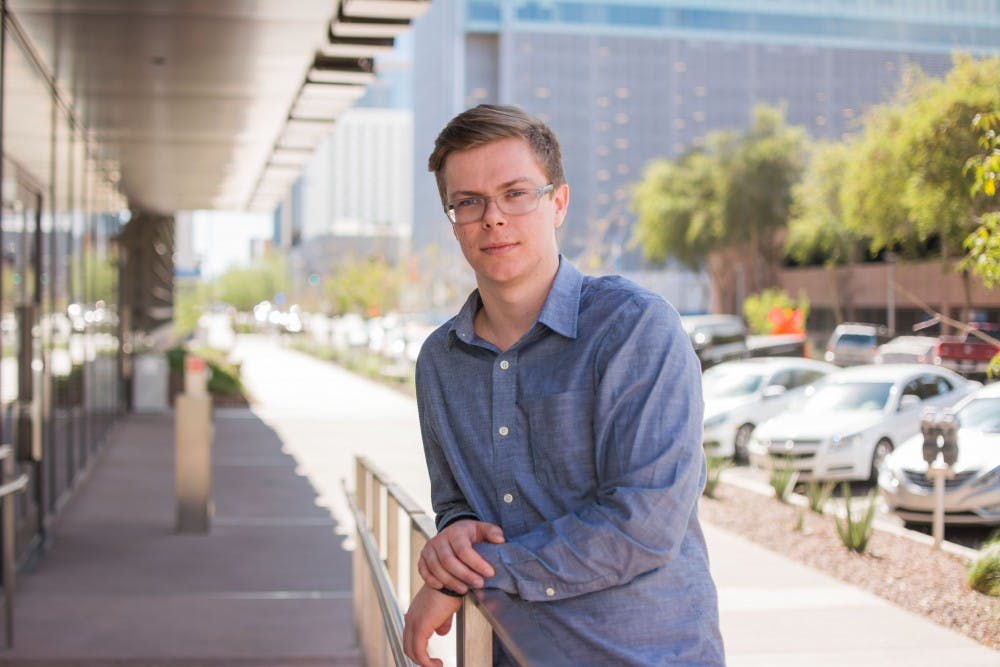The Arizona Board of Regents will make the final decision on the tuition prices for all three Arizona universities April 6.
Undergraduate Student Government President and health innovation junior Jackson Dangremond weighed in on the conversation at an open forum held the day ASU’s proposal was released to the public.
Dangremond gave mixed reviews of the proposal.
“In terms of my stance on supporting the rising prices, as a consumer I do not,” Dangremond said.
He added that the tuition costs were necessary to offset the lack of state funding.
“I support the necessity of a tuition increase in the sense that it provides … for our university to remain operationally functional and providing the services that ASU has set forth, and maintaining its vision to ensure that all students have the same student experience,” he said. “I feel the burden of the costs in paying for college. It’s not something I take lightly, and ... neither should you."
Dangremond also said that this fits in with his ticket's values of fostering continued civic engagement.
“I think this issue really highlights the importance of civic engagement and why its important to stay informed and know who your representatives are at the local level,” he said. “Whether it’s knowing your student government, or officials at a state level so you can connect with them and tell them how it’s important and how or why funding higher education is important to you.”
Read more: ASU tuition proposal for 2017-18 would increase cost for all students
Former Vice President of Policy for USGD and law and policy senior Ryan Boyd echoed these sentiments in an interview after the forum, but said the student engagement has been ineffective in the past. ABOR holds a tuition town hall prior to finishing tuition proposals every year.
This year's town hall will be on Mar. 28.
“At all three of the tuition town halls that I’ve seen, nothing changes between the town hall and the setting of the tuition,” Boyd said. “Certain things can change very slightly, but only if students really start pushing.”
Boyd said that if enough students showed up it could lead to significant changes.
“The reason it doesn’t make a change right now is because there is not a critical mass," Boyd said. "Things will change when more people actually show up."
Boyd also said USG representatives generally support the proposal, whether students support it or not.
“The concern is that if we go against the ASU administration publicly, we will be cut from a privileged status and simply be ignored,” Boyd said. “Counterpoints that some of us raise are that students will not receive anything they don't ask, as ASU administration sometimes notes that they never thought certain things were problems because they never heard it from us because we were too afraid to speak up.”
USGD senatorial candidates also weighed in on the proposal.
Jake Baker, senatorial candidate for the College of Public Service and Community Solutions said that he feels senators should have a seat at the table.
“I think for senators their best interest is their college," Baker said. "I think they should be a part of that conversation I think they should advocate for their college and see that they get the most for their portion of the budget.”
Boyd said that their (senators') responses highlight that senators don’t fully grasp their part in drafting the tuition proposal.
“It’s an interesting situation,” Boyd said. “I would suggest that the senators may not necessarily understand their full power.”
He said that in the past they were unaware, because they were not told.
“We don’t necessarily get told that we were involved with the tuition process,” Boyd said.
He said many USG senators are under the impression that they can only deal with issues within their college and they aren't authorized to do anything outside of that, but that isn't the case.
Boyd suggested that all USGs, as well as the Graduate Student Government, should work together in the future on the tuition proposal.
“The effective answer is to coordinate more as a group, and put the Senate opinion to the administration of the local government, and all five student government branches so that they can bring it forth to the administration," Boyd said.
Reach the reporter at isaac.windes@asu.edu or follow @isaacwindeschef on Twitter.
Like The State Press on Facebook and follow @statepress on Twitter.




